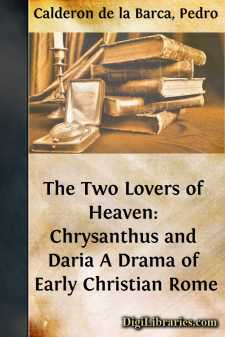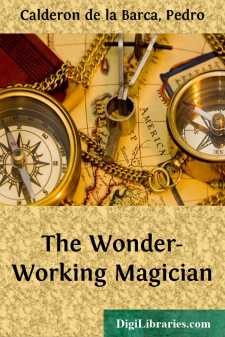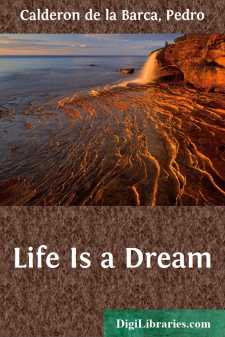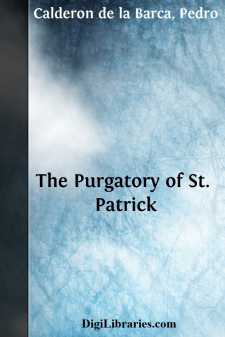Categories
- Antiques & Collectibles 13
- Architecture 36
- Art 48
- Bibles 22
- Biography & Autobiography 813
- Body, Mind & Spirit 142
- Business & Economics 28
- Children's Books 15
- Children's Fiction 12
- Computers 4
- Cooking 94
- Crafts & Hobbies 4
- Drama 346
- Education 46
- Family & Relationships 57
- Fiction 11829
- Games 19
- Gardening 17
- Health & Fitness 34
- History 1377
- House & Home 1
- Humor 147
- Juvenile Fiction 1873
- Juvenile Nonfiction 202
- Language Arts & Disciplines 88
- Law 16
- Literary Collections 686
- Literary Criticism 179
- Mathematics 13
- Medical 41
- Music 40
- Nature 179
- Non-Classifiable 1768
- Performing Arts 7
- Periodicals 1453
- Philosophy 64
- Photography 2
- Poetry 896
- Political Science 203
- Psychology 42
- Reference 154
- Religion 513
- Science 126
- Self-Help 84
- Social Science 81
- Sports & Recreation 34
- Study Aids 3
- Technology & Engineering 59
- Transportation 23
- Travel 463
- True Crime 29
The Two Lovers of Heaven: Chrysanthus and Daria A Drama of Early Christian Rome
Description:
Excerpt
ACT THE FIRST.
Scene I.—A Room in the house of Polemius at Rome.
Chrysanthus is seen seated near a writing table on which are several books: he is reading a small volume with deep attention.
Chrysanthus.
Ah! how shallow is my mind!
How confined! and how restricted!
Ah! how driftless are my words!
And my thoughts themselves how driftless!
Since I cannot comprehend,
Cannot pierce the secrets hidden
In this little book that I
Found by chance with others mingled.
I its meaning cannot reach,
Howsoe'er my mind I rivet,
Though to this, and this alone,
Many a day has now been given.
But I cannot therefore yield,
Must not own myself outwitted:—
No; a studious toil so great
Should not end in aught so little.
O'er this book my whole life long
Shall I brood until the riddle
Is made plain, or till some sage
Simplifies what here is written.
For which end I 'll read once more
Its beginning. How my instinct
Uses the same word with which
Even the book itself beginneth!—
"In the beginning was the Word" . .
If in language plain and simple
Word means speech, how then was it
In the beginning? Since a whisper
Presupposes power to breathe it,
Proves an earlier existence,
And to that anterior Power
Here the book doth not bear witness.
Then this follows: "And the Word
Was with God"—nay more, 't is written,
"And the Word was God: was with Him
In the beginning, and by Him then
All created things were made
And without Him naught was finshed":—
Oh! what mysteries, what wonders,
In this tangled labyrinthine
Maze lie hid! which I so many
Years have studied, with such mingled
Aid from lore divine and human
Have in vain tried to unriddle!—
"In the beginning was the Word".—
Yes, but when was this beginning?
Was it when Jove, Neptune, Pluto
Shared the triple zones betwixt them,
When the one took to himself
Heaven supreme, one hell's abysses,
And the sea the third, to Ceres
Leaving earth, the ever-wingéd
Time to Saturn, fire to Phœbus,
And the air to Jove's great sister?—
No, it could not have been then,
For the fact of their partition
Shows that heaven and earth then were,
Shows that sea and land existed:—
The beginning then must be
Something more remote and distant:
He who has expressly said
The beginning, must have hinted
At the primal cause of all things,
At the first and great beginning,
All things growing out of Him,
He himself the pre-existent:—
Yes, but then a new beginning
Must we seek for this beginner,
And so on ad infinitum;
Since if I, on soaring pinion
Seek from facts to rise to causes,
Rising still from where I had risen,
I will find at length there is
No beginning to the beginning,
And the inference that time
Somehow was, ere time existed,
And that that which ne'er begun
Ne'er can end, is plain and simple.
But, my thought, remain not here,
Rest not in those narrow limits,
But rise up with me and dare
Heights that make the brain grow dizzy:—
And at once to enter there,
Other things being pretermitted,
Let us venture where the mind,
As the darkness round it thickens,
Almost faints as we resume
What this mystic scribe has written....





